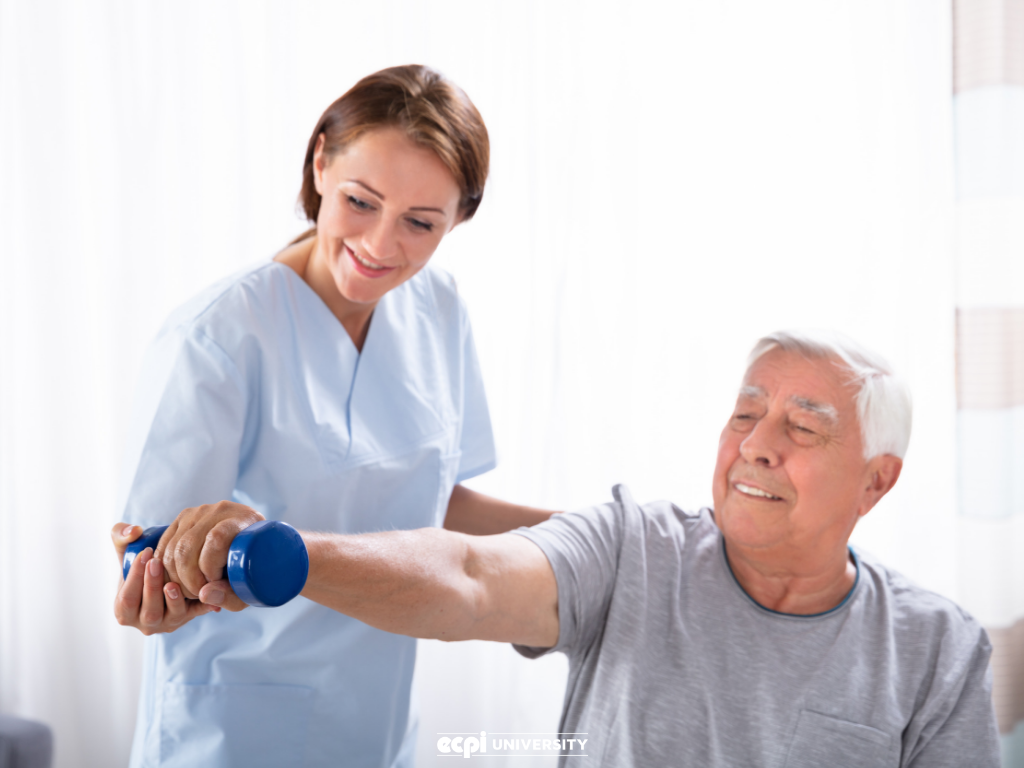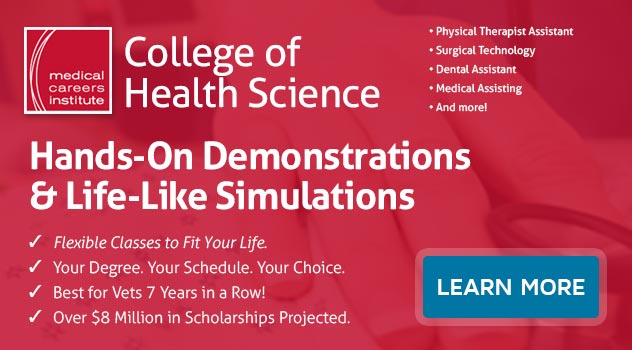What Does a PTA Do on a Daily Basis for their Job?
Life is full of twists and turns. Sometimes, these lead to nasty spills and falls. When people are injured, it is up to the Physical Therapist Assistant (PTA) to help them get back up on their feet. It is a demanding job whose rewards are measured by the improvement in your patient's lives.
If you want to dedicate your life to helping people regain their mobility and range of motion following accidents, illness, or age, then working as a PTA will be the most rewarding career you can pursue. With a growth rate estimated at 30% by the Bureau of Labor Statistics, you'll have plenty of work to do.
Everything According to Plan
PTA's adhere to the treatment plans created for patients by licensed physical therapists. As a PTA, your role is to translate the plan into action and assist patients as they undergo stretching, strength training, and undergo other exercises that help restore their mobility and range of motion.
You will be responsible for tracking the progress of your patients and reporting their improvements to the Physical Therapist. At times, you will take an active role in adjusting the treatment plan so that it meets your patient's evolving needs and health. It is also your responsibility to ensure that the treatment area is neat, tidy, and ready for the next patient.
You will also help patients understand the steps they must take to maintain their health and the exercises they must engage in on their own following each session. Your ultimate goal is to help patients prevent the progression of ailments, and, as much as possible, to reverse the damage done by injuries, diseases, and disorders.
Skills That Lead to Success
By nature, PTAs are compassionate people. To succeed, you must have the ability to recognize and empathize with your patient's concerns and doubts regarding their recovery process. You must be able to comfort those in physical pain and ease their fears.
A good sense of humor and the ability to remain calm with patients under stress goes a long way in this regard. Combined with your ability to listen and communicate, this helps you build a rapport with your patients. As a PTA, your interpersonal skills and ability to connect with your patients will be the cornerstone of your career.
Success in the career requires attention to details. PTA's must have the ability to observe patients and correctly identify problems with dexterity and range of motion. As a "hands on" member of the recovery team, you will help your patient's manipulate their bodies as they engage in therapeutic exercises. At times, your patients will tell you the problems they are having. At times, you will have to observe the issues they can't express. This requires you to have a proactive approach to the treatment plan so that you can adjust the plan to meet your patient's needs.
Finally, you must be strong and take care of your own health. PTA's are required to spend their days on their feet. You will spend much of your time lifting and moving clients. As a PTA, you can expect to spend time building your own strength and improving your own stamina.
Education is the Key
Students who want to become PTA's must graduate from an accredited program recognized by The Commission on Accreditation in Physical Therapy Education (CAPTE). These programs typically take two years to complete, but can be completed faster through accelerated education.
Courses required for graduation include Introduction to Physical Therapy, Introduction to Psychology, Clinical and Pathological Physiology, Anatomy and Physiology, Therapeutic Exercise, and College Algebra. You will also need to take classes in Medical and Surgical Conditions, Rehabilitation, Motor Development and Aging, and Writing.
Towards the end of your program, you will need to successfully complete multiple internships. Your internships give you an opportunity to apply your skills and knowledge in real-world settings with patients while you learn under the guidance of your peers in the physical therapy profession. These provide an invaluable opportunity for you to discover the best ways to apply your talents for the benefit of the patients under your care. For most students, the internships are the most demanding and enjoyable part of their PTA program.
Are You Ready to Start Your Journey?
If you want to earn an Associate of Applied Science in Physical Therapist Assisting, ECPI University offers this degree program at an accelerated pace. For more information, connect with a knowledgeable admissions representative today.
It could be the Best Decision You Ever Make!
DISCLAIMER – ECPI University makes no claim, warranty, or guarantee as to actual employability or earning potential to current, past or future students or graduates of any educational program we offer. The ECPI University website is published for informational purposes only. Every effort is made to ensure the accuracy of information contained on the ECPI.edu domain; however, no warranty of accuracy is made. No contractual rights, either expressed or implied, are created by its content.
Gainful Employment Information – Physical Therapy Assisting - Associate’s
For more information about ECPI University or any of our programs click here: http://www.ecpi.edu/ or http://ow.ly/Ca1ya.





